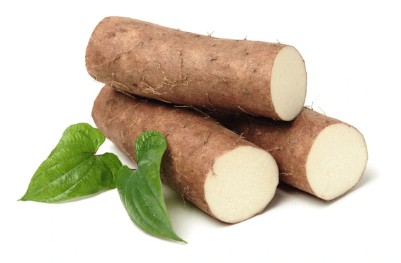Dioscoreaa (Wild Yam) Transformation
Dioscoreaa belongs to the group of plants whose tubers are rich in starch and can be eaten by humans. Dioscorea is a perennial herbaceous vine, and the species is cultivated by local people to consume Dioscorea tubers in many temperate and tropical regions, especially in Africa, South America, the Caribbean, Asia, and Oceania. Dioscorea is widely cultivated and consumed as an essential tuberous vegetable crop that is rich in starch, protein, and many nutrients and is widely cultivated and consumed. Genetic transformation techniques have been applied to Dioscorea research and breeding to improve traits and yield.
Lifeasible is committed to plant genetic transformation research. Based on our advanced genetic transformation platform and experienced technical team, we can provide advanced and reliable genetic transformation solutions for Dioscorea, which play an essential role in unearthing its superior genes, improving genetic quality, and accelerating Dioscorea breeding.

What do we offer?
Agrobacterium-mediated genetic transformation and the gene gun method are most commonly used in Dioscorea genetic transformation.
- Using Agrobacterium, we insert the target gene into the transposon (T-DNA) of Agrobacterium and then introduce the transposon into Dioscorea cells. The target gene in the transposon will be integrated into the chromosome in the Dioscorea cells and expressed during the growth and development of the Dioscorea.
- The gene gun method is another commonly used technique for genetic transformation of Dioscorea. This technique uses a gene gun to "shoot" the target gene vector into the Dioscorea tissue at high speeds, allowing the target gene vector to penetrate the cell wall and enter the cytoplasm. The target gene is then integrated into the chromosome and expressed in the Dioscorea cell.
Our research objectives
After years of research, we have screened the optimal transformation conditions and established an experimental platform with a high transformation rate, which solves the problems faced in Dioscorea genetic transformation, such as low transformation efficiency and unstable integration sites. Our research on Dioscorea genetic transformation mainly focuses on gene function research and variety improvement. In gene function research, our researchers transform Dioscorea to study the function of specific genes in Dioscorea growth and development, stress tolerance, and metabolic regulation. This helps to understand better the biological characteristics and gene regulatory networks of Dioscorea. On the other hand, variety improvement of Dioscorea is also an important application of genetic transformation. By introducing exogenous genes, we can artificially modify Dioscorea to obtain new Dioscorea varieties with stronger disease resistance, better quality, and higher yield.
- Disease resistance. Dioscoreaa is susceptible to numerous diseases caused by viruses, fungi, bacteria, and nematodes. By introducing genes conferring resistance to these pathogens, we aim to enhance its natural defense mechanisms. This would reduce yield losses caused by diseases and contribute to sustainable yam production.
- Yield improvement. Increasing the productivity of Dioscoreaa is critical to meet the growing global demand for Dioscoreaa. Our research aims to optimize traits related to plant growth, tuber formation, and yield, leading to higher yam production per unit area. This would contribute to food security and economic prosperity in yam-producing regions.
- Nutritional enhancement. Dioscoreaa is a valuable source of carbohydrates and other essential nutrients. Through genetic transformation, we aim to enhance the nutritional profile of yam, including increased levels of vitamins, minerals, and bioactive compounds. This would improve the dietary quality and health benefits associated with Dioscoreaa consumption.
- Post-harvest storage. Yam tubers are highly perishable and prone to decay during storage, leading to significant post-harvest losses. Our research focuses on introducing genes that enhance the tubers' resistance to rotting, thus extending their shelf life. This would ensure a longer storage period and reduce economic losses for farmers and distributors.
Note to customers
- We are available to conduct transgenic Dioscorea technology service experiments throughout the year.
- Clients can make personalized requests for service options and deliverables, and both parties will agree on the technical solutions and fees.
- We deliver experimental results.
- Vector construction sequencing report and pictures.
- Pictures of explant infestation, induced healing, embryonic healing, tissue differentiation, and plant regeneration.
- Gel electrophoresis diagram for PCR detection of target genes in T0 generation regenerated plants.
Our service workflow

Lifeasible has established a complete and efficient plant genetic transformation platform, and we can meet a wide range of plant genetic transformation requirements by utilizing advanced transformation technologies. In addition, we can provide customized research services according to customer requirements. If you are interested in us, please feel free to contact us.
For research or industrial raw materials, not for personal medical use!

